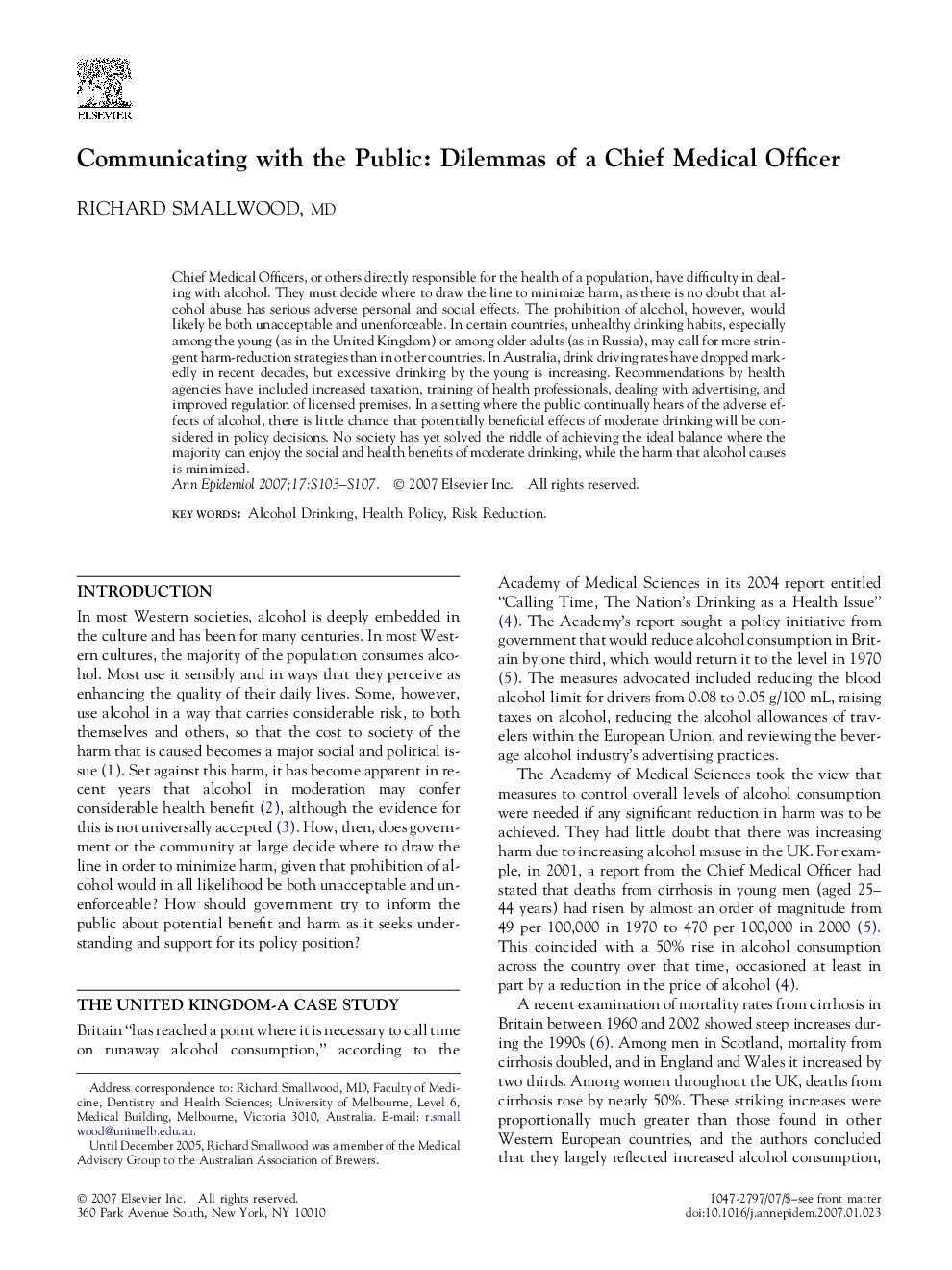| Article ID | Journal | Published Year | Pages | File Type |
|---|---|---|---|---|
| 3445447 | Annals of Epidemiology | 2007 | 5 Pages |
Abstract
Chief Medical Officers, or others directly responsible for the health of a population, have difficulty in dealing with alcohol. They must decide where to draw the line to minimize harm, as there is no doubt that alcohol abuse has serious adverse personal and social effects. The prohibition of alcohol, however, would likely be both unacceptable and unenforceable. In certain countries, unhealthy drinking habits, especially among the young (as in the United Kingdom) or among older adults (as in Russia), may call for more stringent harm-reduction strategies than in other countries. In Australia, drink driving rates have dropped markedly in recent decades, but excessive drinking by the young is increasing. Recommendations by health agencies have included increased taxation, training of health professionals, dealing with advertising, and improved regulation of licensed premises. In a setting where the public continually hears of the adverse effects of alcohol, there is little chance that potentially beneficial effects of moderate drinking will be considered in policy decisions. No society has yet solved the riddle of achieving the ideal balance where the majority can enjoy the social and health benefits of moderate drinking, while the harm that alcohol causes is minimized.
Keywords
Related Topics
Health Sciences
Medicine and Dentistry
Medicine and Dentistry (General)
Authors
Richard MD,
